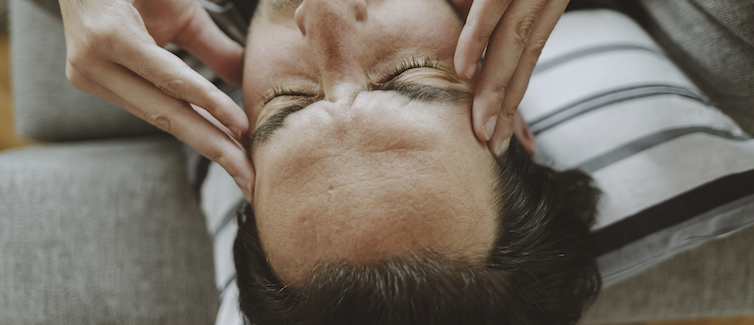Anxiety disorders are commonly linked to trauma but may also be a sign of another underlying issue, such as diabetes or heart disease. However, migraines and anxiety are often closely linked. So, are they connected? And does one worsen the other?
What Is a Migraine?
Migraines are severe headaches that often involve feelings of sharp pain behind your temples, eyes, or ears. In some cases, people also experience sensitivity to light, nausea, and vomiting. Migraines can last from a few hours to several days.
Never Miss a Beat!
Subscribe to Our HealthBeat Newsletter!
Thank you for subscribing!
You can now select the specific newsletters you'd like to receive.
You are already subscribed.
Subscribe to more newsletters in our email preference center.
Sorry, an error occurred. Please try again later.
Get Healthy Tips Sent to Your Phone!
Symptoms of a Migraine
Some people with migraines experience what is known as aura, which is the gradual worsening of symptoms that lead to a migraine — such as pins and needles in the arms or legs, difficulty speaking, and or vision loss. Other symptoms of a migraine include:
- Constipation
- Neck stiffness
- Frequent yawning
- Food cravings
- Increased urination
- Mood changes
The Connection Between Anxiety Disorders and Migraines
Research shows that people who suffer from anxiety may have more migraines than those who do not. Many people who have chronic migraines also may have a generalized anxiety disorder.
There is debate, however, whether migraines cause anxiety or anxiety causes migraines.
What Is an Anxiety Headache?
An anxiety headache is a throbbing in the head induced from anxious behavior or exhaustive worrying. People who already suffer from migraines may find that their symptoms of anxiety can create anxiety migraines, or migraines brought about from anxious behaviors.
Does Anxiety Cause Migraines?
Migraine causes differ from person to person. If you have a history of migraines, a predisposition to migraines, or if you suffer from an anxiety disorder, you may have a higher likelihood of developing migraine headaches.
Panic attacks and feelings of anxiety can prompt migraines. For example, if anxiety keeps you from sleeping well, you may become increasingly anxious about your ability to function due to lack of sleep. This heightened level of anxiety can, in turn, trigger a migraine.
Can Migraines Cause Anxiety?
On the other hand, some doctors believe that experiencing frequent migraines is a sign that a person has an anxiety disorder.
Migraines can be a major factor in the development of a generalized anxiety disorder. Symptoms of migraines that can cause anxiety include:
- Continual pain.
- Lack of sleep.
- Sensitivity to one’s surroundings.
Other symptoms associated with migraines, such as nausea, can cause anxiety in some people. Sensing that a migraine is coming also may lead to feelings of unease.
How to Manage Migraine Headaches and Anxiety
The most common recommendations to treat migraines include:
- Get enough sleep during the night.
- Eat a healthy diet.
- Drink plenty of water.
Keep track of when you have migraines and anxiety, and what you were doing beforehand. This can help you figure out what contributes to your anxiety and migraines.
If you still cannot find relief, talk to your health care provider. Some medications treat anxiety in addition to migraine pain. Your provider may also suggest counseling to help cope with migraine symptoms, especially if you already have an anxiety disorder.
Sources
About UPMC Western Behavioral Health
UPMC Western Psychiatric Hospital is the hub of UPMC Behavioral Health, a network of community-based programs providing specialized mental health and addiction care for children, adolescents, adults, and seniors. Our mission is to provide comprehensive, compassionate care to people of all ages with mental health conditions. UPMC Western Psychiatric Hospital is a nationally recognized leader in mental health clinical care, research, and education. It is one of the nation’s foremost university-based psychiatric care facilities through its integration with the Department of Psychiatry of the University of Pittsburgh School of Medicine. We are here to help at every stage of your care and recovery.
